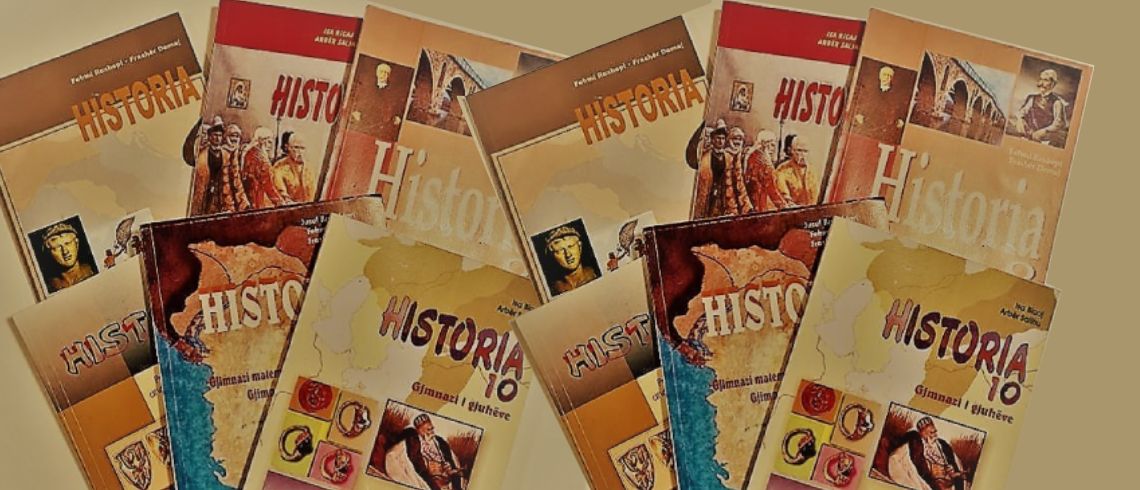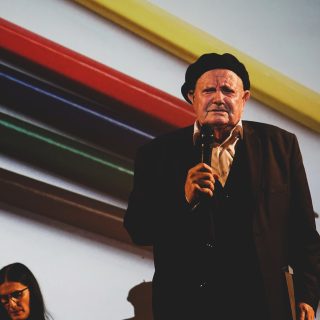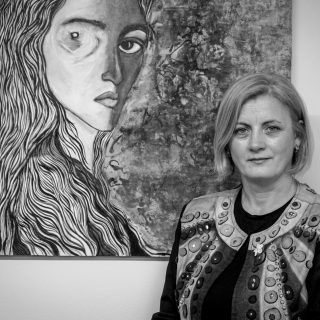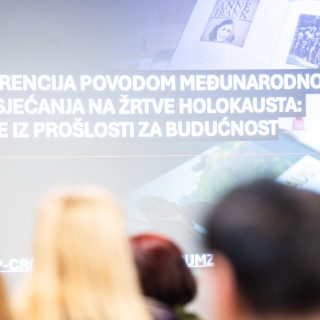Afërdita Lukaj
You cannot find much about the 1998-99 war in Kosovo in the history textbooks of primary and secondary schools in Serbia.
What those texts contain are even more crimes allegedly committed by Albanians.
The primary school textbooks, grades 5 to 12, in Kosovo also present even more only the crimes committed by Serbian forces.
Searches in internet also display highly opposing versions of the history.
The study “The 1998 – 1999 Kosovo war in history textbooks in Kosovo and Serbia”, conducted in 2019 by the researcher Shkëlzen Gashi, concludes that there is a big difference in the treatment of Kosovo war in the textbooks of these two countries.
“The textbooks of both sides highlight only the crimes committed by the other side, presenting themselves as victims and the other side as the aggressor,” says Gashi.
“Textbooks in the Albanian language in Kosovo present only Serb crimes against Albanians. Whereas those in the Serbian language present only Albanian crimes against Serbs”, adds Gashi.
Some events with descriptions such as “attacks of local Albanian gangs”, “Albanian terror against Serbs” or “robbery and conflicts of terrorist groups with the law enforcement” appear in some parts, especially in the textbooks of the elementary level.
Textbooks in the Albanian language also describe even more the crimes committed during the war, but not the fact that there were victims on the other side as well.
Gashi emphasizes that textbooks have created an environment of disagreement and are deficient in terms of the full history.
“Not a single word is said in Kosovo about the advocates of a peaceful solution, nor about the division between peaceful and military goals of politics in Kosovo,” says Gashi.
Approaches to the past and to its lessons are still a topic of discussion, as long as the parties continue to remain completely divided and the parties still remain steadfast in their versions.
Dubravka Stojanovic, a professor of history at the University of Belgrade, says that the education systems in Kosovo and Serbia must stop the spread of hatred.
Unfortunately, some of the school topics have been declared as “identity topics”. This means that they are not educational, but ideological subjects. This phenomenon must be stopped because students will not receive the right education, but propagandistic dogmas,” says Stojanovic.
“Thus, they cannot become citizens of democratic countries, but simply the object of autocratic leaders,” she adds.
Besides the history related to politics, the new textbooks give more space to the social and cultural impact of historical events.
Stojanovic says that textbooks of both countries still suffer from the use of nationalist rhetoric.
“The revision of history in textbooks can be the beginning of normalizing relations, if not of reconciliation. We need critical thinkers, not robots,” she says.
As of 1990s, the education system played a crucial role in shaping the political history in Kosovo and Serbia, when it was divided along ethnic lines. Since Serb repression against the Kosovo Albanian population increased, both parties removed each-other’s language and history from their curricula.
The historian Shkodran Imeraj, a research associate at the Institute of History, denies the one-sided presentation of the history.
“The history of Kosovo in textbooks is built on truth and, compared to the historiography of the countries of the region, it is much more argued,” he says.
“There are no falsifications in different periods, as Serbs did in their studies for the history and for other peoples in the Balkans,” he added.
Iva Gajic, a journalist in Belgrade, says that they did not learn much in her class, in the primary and secondary school, about the 1990s and the wars that took place.
“We learned about Kosovo (and Metohija as it is written in every book in Serbia), but only about the wars that took place centuries ago,” she says. “We also learned that Serbia was bombed by NATO in 1999 and that many Serbs fled to Serbia.”
Gajic says that relations in the region are not so peaceful and when wars are discussed, the formal education will always be different. “It always is that way. We have to find another way to make the difference.”
The Serbian historian, Zoran Janjetovic, says in his research “From Foe to Friend and Back” that in school textbooks, Albanians are portrayed as bad people who have persecuted Serbs for the last 500 years.
“The image of Albanians, as eternal enemies of Serbs, was passed on to many Serb generations, and such a lesson in history, combined with the Albanian nationalism, feeds the conflict and the lack of will for reconciliation,” says the historian Janjetovic.
The review of history books, everywhere in the countries of the former Yugoslavia, continues to face resistance for a truth that includes the other side as well.
Serb victims of NATO bombing in the spring of 1999 have an important place in Serbian textbooks, while Albanian textbooks focus more on the origin of the war and on the crimes committed against the Kosovo Albanian population.
The Ministry of Education of Kosovo and the Ministry of Education of Serbia have ignored the ZFD request to comment on the issue of textbooks.
Bekim Blakaj, the director of the Humanitarian Law Center in Pristina, who has also analyzed textbooks of both countries on the subject of history, with a focus on the 90s, especially the war in Kosovo, says that they are deficient on both sides.
“Both sides mention only the victims of their own side, increasing the number of victims, and they do not mention the victims of the other side,” says Blakaj.
“Also, these textbooks do not mention anywhere war crimes facts that have been confirmed by local courts and the International Criminal Tribunal for the former Yugoslavia,” he added.
Correcting the incorrect content of the textbooks has been something that has been requested only by the civil society.
Blakaj says that there are now accurate sources of information on the war that could serve textbook authors, including documents used in war crimes trials.
“The officialization of the accurate reflection of war crimes must take place everywhere in the countries of the former Yugoslavia, so that dealing with the past does not remain a burden on younger generations,” says Blakaj.
This article is a product of online training Dealing with the Past (DWP) / Conflict Sensitive Journalism, implemented by forumZFD-Program in Kosovo. The views expressed in this article are the responsibility of the author and they do not reflect the views of forumZFD.




